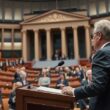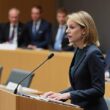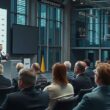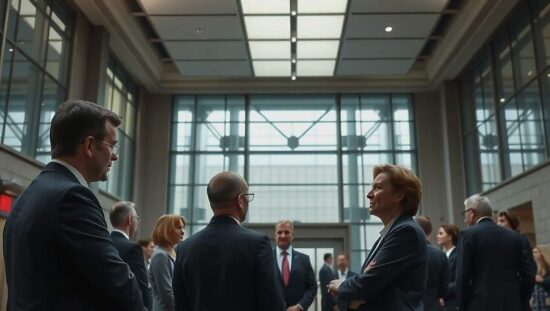Former Ukrainian Foreign Minister Dmytro Kuleba has cautioned against premature optimism regarding a swift resolution to the conflict in Ukraine, following recent diplomatic engagements in Alaska and Washington. In an interview, Kuleba stated that despite outward appearances, a near-term peace agreement is unlikely, asserting that the war is projected to continue.
Kuleba, who served as Foreign Minister until September 2024, indicated that Russian President Vladimir Putin is actively avoiding a direct meeting with Ukrainian President Volodymyr Zelenskyy. He described a pattern where Putin publicly signals willingness to negotiate while simultaneously instructing his diplomats to obstruct any substantive progress toward a deal. “Putin understands that entering a room for a personal meeting requires either reaching an agreement or at least outlining one. His motivation hasn’t changed; he believes he can win the war and that the West is beginning to falter” Kuleba explained.
Looking ahead, Kuleba anticipates increased pressure from the US administration on both Ukrainian and European leaders in the coming weeks. He suggests a two-pronged approach, with Washington portraying Russia as a constructive and willing partner, thereby seeking concessions from Ukraine and the broader European community. Simultaneously, he expects the Americans to exert pressure, implying that European and Ukrainian leverage is contingent on US support and adherence to proposed solutions.
However, Kuleba expressed confidence in the resilience of European unity. He believes that if Europe maintains internal cohesion and steadfastly supports Ukraine, neither Donald Trump nor Vladimir Putin will be able to drive a wedge between them. He suggests this understanding exists, though unstated, in both Moscow and Washington.
Regarding the potential for a European military presence within Ukraine, Kuleba indicated that combat troops are unlikely. However, he suggested the possibility of a limited deployment of personnel stationed far from the front lines – primarily as a symbolic gesture of support and solidarity. He characterized this as a move intended to convey continued backing for Ukraine, even if practical contributions remain limited.





